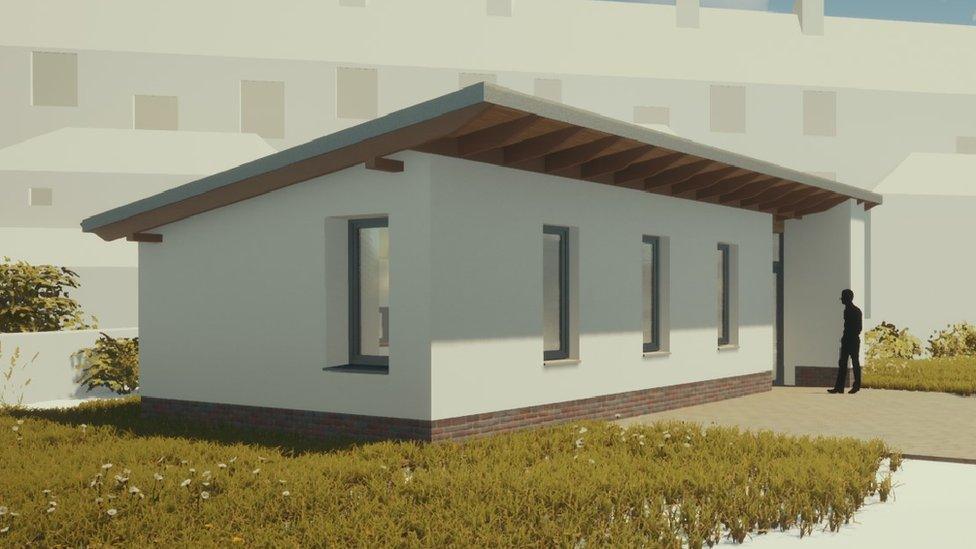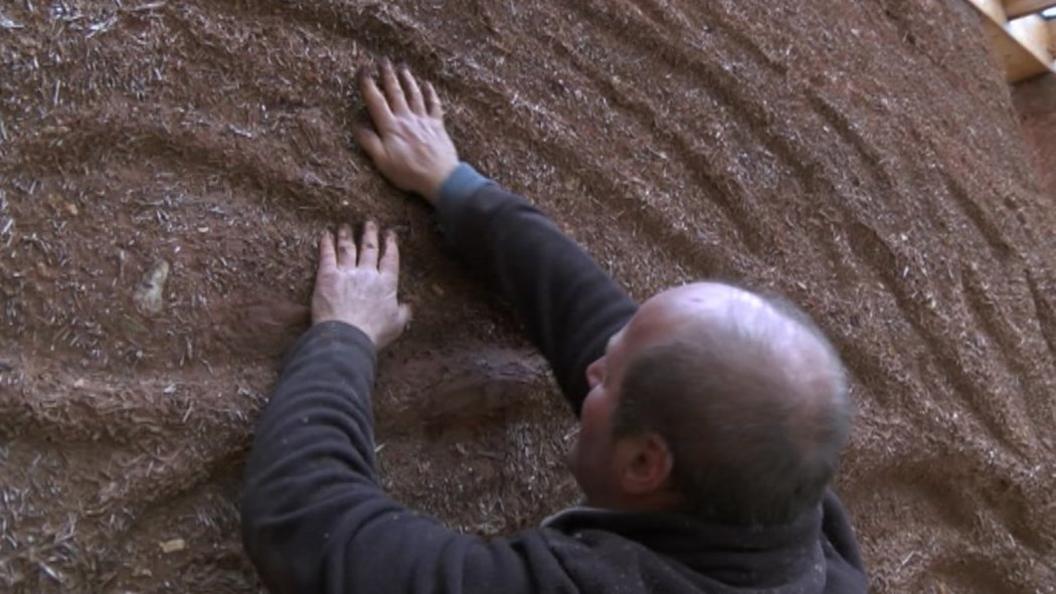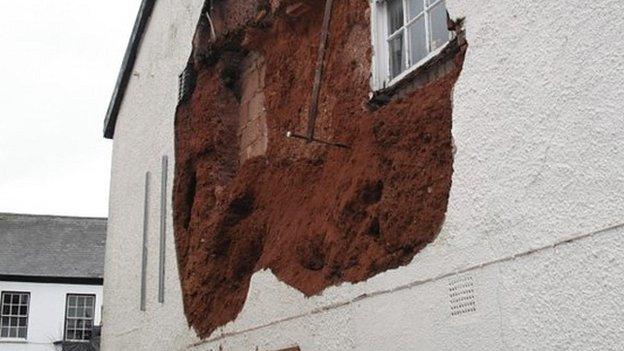University of Plymouth builds classroom out of mud and hemp
- Published

The completed single-storey cob building will be a classroom and laboratory
An ancient building method - the use of cob - is being used in Devon to see if it can cut the building industry's impact on global warming.
Researchers at the Sustainable Earth Institute at the University of Plymouth are constructing a building on campus using the mud and fibre material.
The single-storey building will be a classroom and laboratory, with its performance studied and monitored.
Project bosses said it would be a "living lab and demonstration site".

The building material is a combination of mud and fibre
The construction work is part of the institute's CobBauge project, which the university said was "investigating whether an optimised version of cob can become a sustainable solution for a new generation of energy-efficient housing".
Prof Steve Goodhew said one of the major issues was trying to "reduce the energy use, and therefore the emissions, in buildings".
He said: "Of all the emissions in the UK, 40% are associated with building; and 8% of global emissions come from cement".
Prof Goodhew said the work was trying to find out if "we can drop the amount of cement we use... [by] physically using alternative natural building materials".
He added that the "living lab and demonstration site" could "become the centre of attention for a wide range of people" from construction professionals to students.

The cob building has to prove it can withstand heavy loads and any weather conditions
The material is not new to the region, with thousands of cob houses and farm buildings dating from the 14th Century having survived in the south-west of England.
However, the new building is being constructed with a version of cob that has been analysed in a laboratory, with those involved trying to choose the best soil and fibres for the job, in this case hemp.
It also has to prove it can withstand heavy loads and any weather conditions thrown at it to ensure it can pass building regulations.
The 45 sq m (484 sq ft) building was expected to be completed in early spring 2022, the university said.

Follow BBC News South West on Twitter, external, Facebook, external and Instagram, external. Send your story ideas to spotlight@bbc.co.uk, external.
Related topics
- Published29 July 2016

- Published27 February 2014

- Published24 February 2014

- Published20 January 2014
